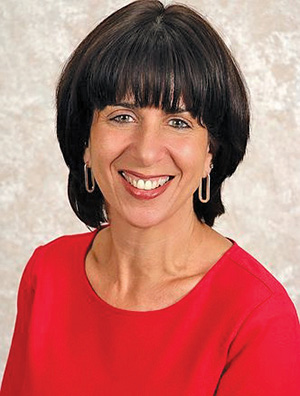
Imagine the following scenario: You and your spouse are invited to a large social gathering. Someone approaches you with a big smile and a warm greeting, and then asks you about your children, your job, etc. You smile and exchange pleasantries and she then tells you how great you look, and how it was just wonderful seeing you. After she turns to walk away, your spouse whispers to you, “Who was that?” You reply quietly, “I have no idea.” You later approach a friend of yours at the same party. He introduces you to the person standing next to him, and you smile and engage in social chit chat. Another friend notices you and walks over to join the small group. You instinctively want to make the appropriate introduction, but you realize that you cannot remember the name of the person to whom you were just introduced. You have two choices: embarrassingly ask the man his name again, or just don’t introduce him and hope no one notices or cares. Are these typical “senior moments” or is there something more serious going on? How do we know the difference?
Mental abilities change throughout life, first as a result of brain maturation as one progresses from birth to young adulthood, and later with the aging of brain cells and their billions of complex interconnections. As you mature, you may notice that you have more difficulty multi-tasking, e.g., talking on the phone while cleaning the house. Processing information rapidly and dividing attention effectively are cognitive skills that peak sometime during young adulthood. While memory declines for many people over time, the exact nature of the decline depends on the particular type of memory. The ability to recall new information, such as reading material, becomes more challenging after the age of 40. Language skills develop throughout childhood and are retained throughout adulthood with one exception: recalling a person’s name! Forgetting someone’s name is actually part of normal aging.
There are some cognitive abilities that do not generally decline. For instance, language and vocabulary are not only retained but continue to improve well into middle age. Some cognitive skills are even strengthened by experience, including the ability to manage matters that require reasoning and judgment. Mature people often have a better overview of particular situations, or a better appreciation of various implications and long-term ramifications, than younger people do because of their life experience. (I often quote this fact, backed by various studies, to my children prior to giving them my unsolicited advice.)
But although forgetting a person’s name is indeed part of normal aging, dementia is not part of normal aging. A person must exhibit impairment in social, functional and independent living in order to be given a diagnosis of dementia. Some of the symptoms of dementia may include, but are not limited to, getting lost in familiar places, repetitive questioning, odd or inappropriate behavior, repeated falls or loss of balance, noticeable personality changes, changes in hygiene, increased apathy and changes in language abilities, including comprehension.
There seems to be a lack of consensus among experts about the age at which cognitive function begins to decline. Some scientists believe that the decline starts as early as one’s 20s or 30s, but most interventions are not started until one reaches his 60s and 70s. Perhaps we need to consider starting certain interventions earlier, before the changes have accumulated and have become too difficult to completely overcome.
There are a number of interventions that have been shown to slow down age-related cognitive changes; one is eating a healthy diet. A recent study demonstrated that a high adherence to the so-called Mediterranean diet has been associated with slower cognitive decline and a reduced risk for Alzheimer’s disease.
Several studies have looked at the relationship between exercise and cognitive functions. The conclusion is very clear that there is a direct correlation between aerobic physical activity and brain functions; the benefits of increased activity were seen at every age.
Researchers have also found that high stress levels impair learning and memory in both animals and humans. While reducing stress in one’s life can be challenging and may at times seem impossible, activities like meditation, yoga and exercise have been found to decrease the symptoms of stress on the body.
Other studies have demonstrated that engaging regularly in challenging cognitive tasks can protect against age-related cognitive decline. So if you can, sign up for an adult education class, join a book club, learn to play a musical instrument or write articles for the local paper. There are, of course, no guarantees that any of the above will achieve the desired results, but they may well prove helpful.
Aging has its challenges, but it also has many rewards, especially if you feel well emotionally, physically and cognitively. Getting older is part of living, so you may as well embrace who you are at any age. The next time someone is introduced to you at an event, repeat his or her name out loud and then say it a few times under your breath—see if that helps you remember. If not, don’t sweat it—you’re probably just having a senior moment.
By Beth Taubes
Beth S. Taubes, RN, OCN, CBCN, certified health coach, is the director of Wellness Motivations and will be offering a 30-day “My Challenge” program to help you get back in shape, in addition to nutrition consultations, stress management through yoga, individual and group fitness classes. She can be reached at [email protected] or at wellnessmotivationsbt.com.













